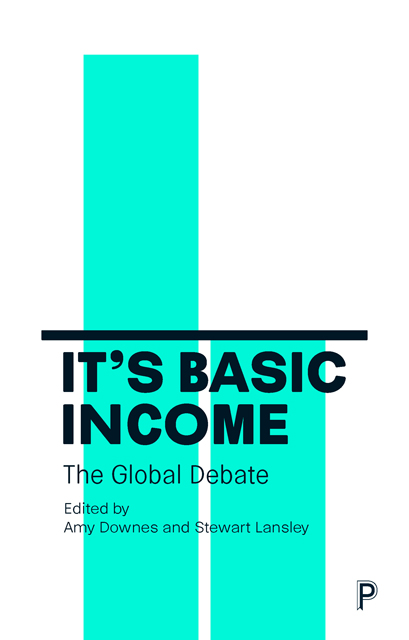37 results
Head and Neck Cancer: United Kingdom National Multidisciplinary Guidelines, Sixth Edition
-
- Journal:
- The Journal of Laryngology & Otology / Volume 138 / Issue S1 / April 2024
- Published online by Cambridge University Press:
- 14 March 2024, pp. S1-S224
- Print publication:
- April 2024
-
- Article
-
- You have access
- Open access
- HTML
- Export citation
Evaluation of a complex intervention for prisoners with common mental health problems, near to and after release: the Engager randomised controlled trial
-
- Journal:
- The British Journal of Psychiatry / Volume 222 / Issue 1 / January 2023
- Published online by Cambridge University Press:
- 18 August 2022, pp. 18-26
- Print publication:
- January 2023
-
- Article
-
- You have access
- Open access
- HTML
- Export citation
In Memoriam: Steven Ames Peterson
-
- Journal:
- Political Science Today / Volume 2 / Issue 2 / May 2022
- Published online by Cambridge University Press:
- 02 June 2022, pp. 17-18
- Print publication:
- May 2022
-
- Article
-
- You have access
- HTML
- Export citation
Multimorbidity clusters among people with serious mental illness: a representative primary and secondary data linkage cohort study
-
- Journal:
- Psychological Medicine / Volume 53 / Issue 10 / July 2023
- Published online by Cambridge University Press:
- 29 April 2022, pp. 4333-4344
-
- Article
-
- You have access
- Open access
- HTML
- Export citation
In Memoriam: Steven Ames Peterson
-
- Journal:
- Politics and the Life Sciences / Volume 41 / Issue 1 / Spring 2022
- Published online by Cambridge University Press:
- 21 February 2022, pp. 150-151
-
- Article
-
- You have access
- HTML
- Export citation
The Ties that (Un)Bind: Change and Organizational Commitment in Ukraine
-
- Journal:
- Management and Organization Review / Volume 17 / Issue 1 / February 2021
- Published online by Cambridge University Press:
- 11 January 2021, pp. 77-111
-
- Article
- Export citation
The Rapid ASKAP Continuum Survey I: Design and first results
- Part of
-
- Journal:
- Publications of the Astronomical Society of Australia / Volume 37 / 2020
- Published online by Cambridge University Press:
- 30 November 2020, e048
-
- Article
-
- You have access
- HTML
- Export citation
Patient sources of diet and nutrition information after a cancer diagnosis
-
- Journal:
- Proceedings of the Nutrition Society / Volume 79 / Issue OCE2 / 2020
- Published online by Cambridge University Press:
- 10 June 2020, E616
-
- Article
-
- You have access
- Export citation
Part III - Dissenting voices
-
- Book:
- It's Basic Income
- Published by:
- Bristol University Press
- Published online:
- 11 April 2023
- Print publication:
- 14 March 2018, pp 96-96
-
- Chapter
- Export citation

It's Basic Income
- The Global Debate
-
- Published by:
- Bristol University Press
- Published online:
- 11 April 2023
- Print publication:
- 14 March 2018
Part VI - The way forward
-
- Book:
- It's Basic Income
- Published by:
- Bristol University Press
- Published online:
- 11 April 2023
- Print publication:
- 14 March 2018, pp 199-199
-
- Chapter
- Export citation
Introduction
-
-
- Book:
- It's Basic Income
- Published by:
- Bristol University Press
- Published online:
- 11 April 2023
- Print publication:
- 14 March 2018, pp 1-11
-
- Chapter
- Export citation
36 - The Kenyan experiment
-
- Book:
- It's Basic Income
- Published by:
- Bristol University Press
- Published online:
- 11 April 2023
- Print publication:
- 14 March 2018, pp 189-192
-
- Chapter
- Export citation
Index
-
- Book:
- It's Basic Income
- Published by:
- Bristol University Press
- Published online:
- 11 April 2023
- Print publication:
- 14 March 2018, pp 217-225
-
- Chapter
- Export citation
Part II - Towards tomorrow’s society
-
- Book:
- It's Basic Income
- Published by:
- Bristol University Press
- Published online:
- 11 April 2023
- Print publication:
- 14 March 2018, pp 58-58
-
- Chapter
- Export citation
Frontmatter
-
- Book:
- It's Basic Income
- Published by:
- Bristol University Press
- Published online:
- 11 April 2023
- Print publication:
- 14 March 2018, pp i-iv
-
- Chapter
- Export citation
Acknowledgements
-
- Book:
- It's Basic Income
- Published by:
- Bristol University Press
- Published online:
- 11 April 2023
- Print publication:
- 14 March 2018, pp xix-xx
-
- Chapter
- Export citation
The contributors
-
- Book:
- It's Basic Income
- Published by:
- Bristol University Press
- Published online:
- 11 April 2023
- Print publication:
- 14 March 2018, pp x-xviii
-
- Chapter
- Export citation
Part IV - Building for change
-
- Book:
- It's Basic Income
- Published by:
- Bristol University Press
- Published online:
- 11 April 2023
- Print publication:
- 14 March 2018, pp 117-117
-
- Chapter
- Export citation
Part I - The case for
-
- Book:
- It's Basic Income
- Published by:
- Bristol University Press
- Published online:
- 11 April 2023
- Print publication:
- 14 March 2018, pp 12-12
-
- Chapter
- Export citation





